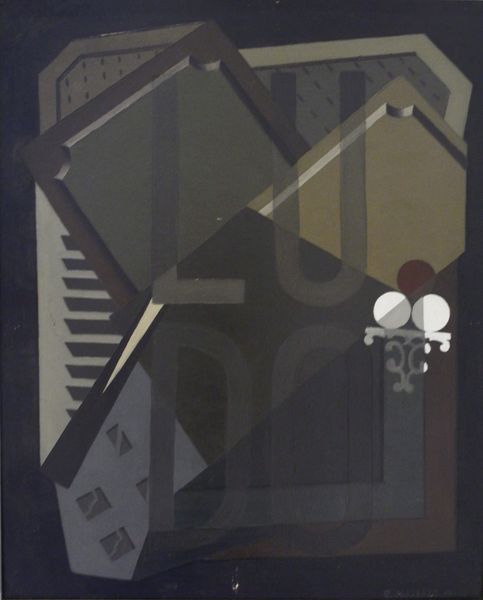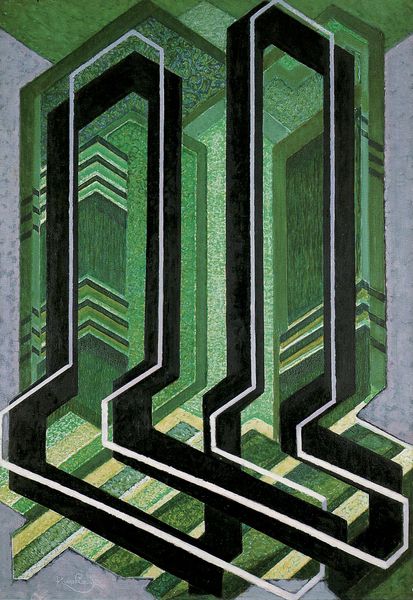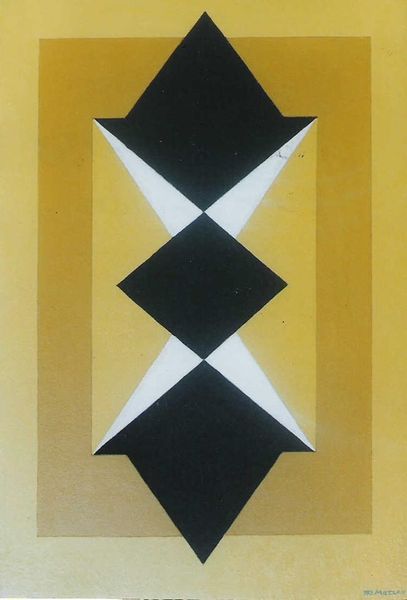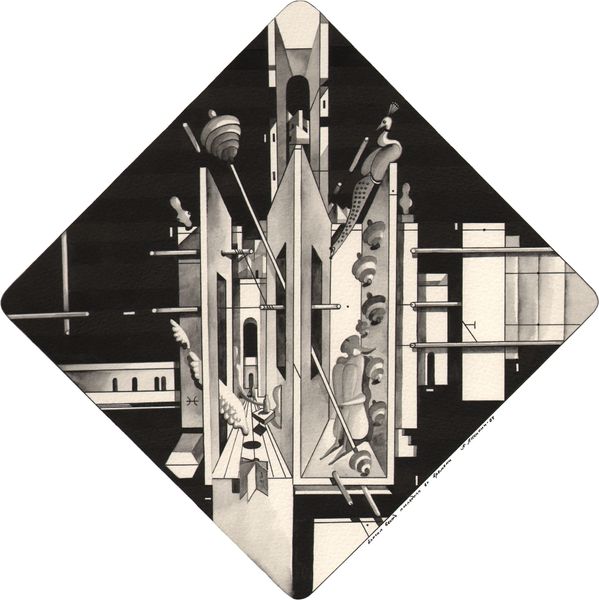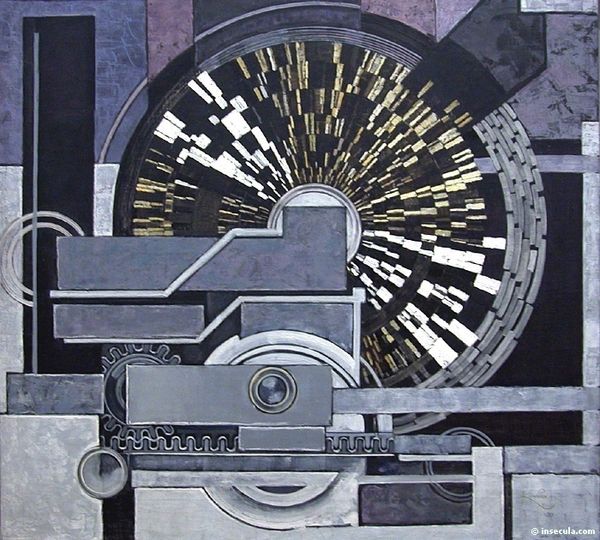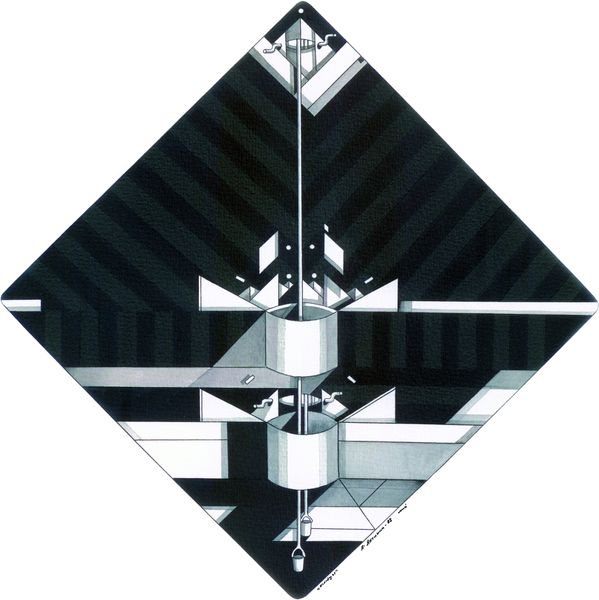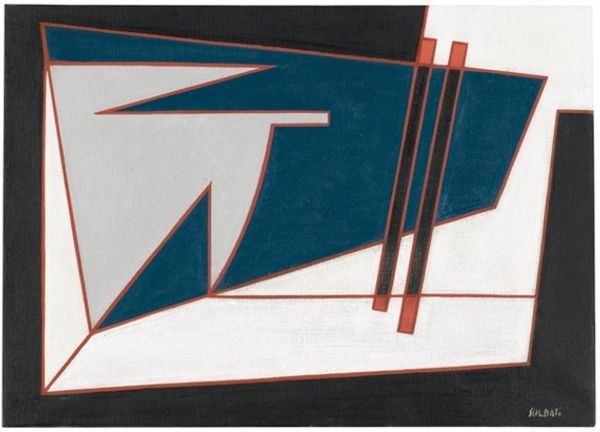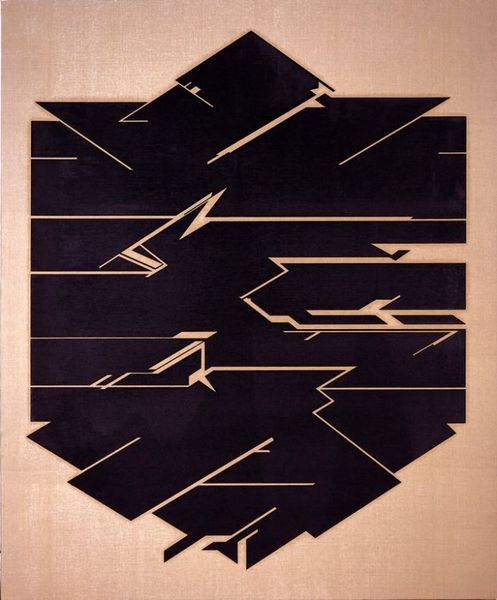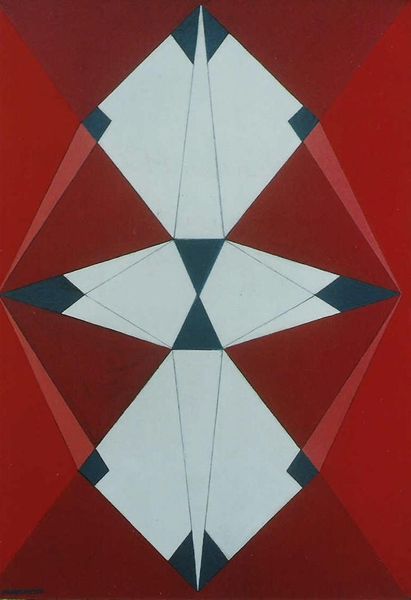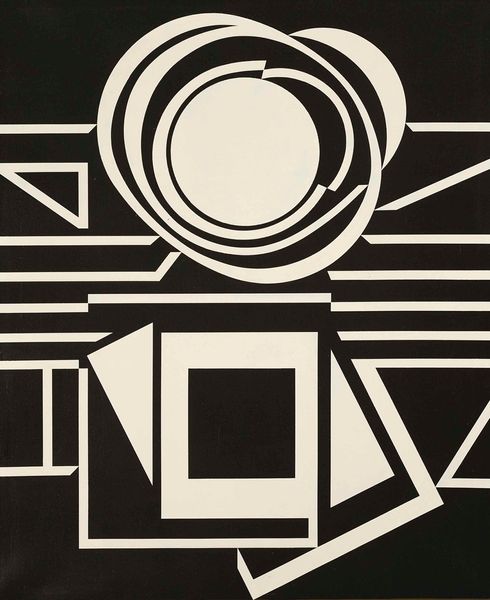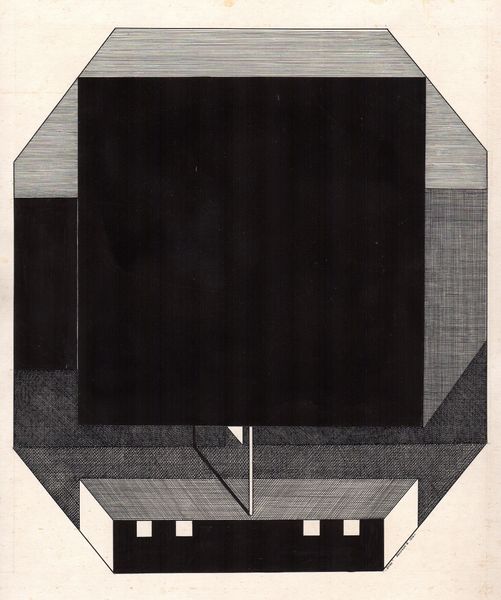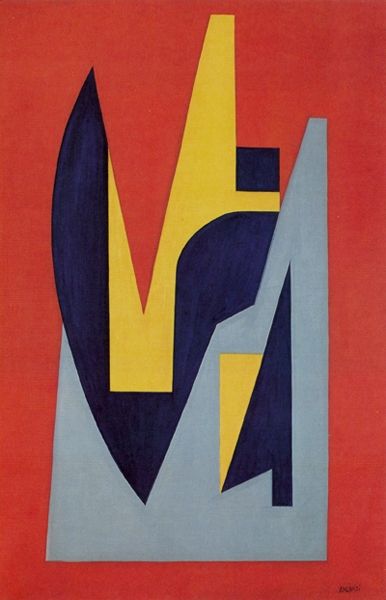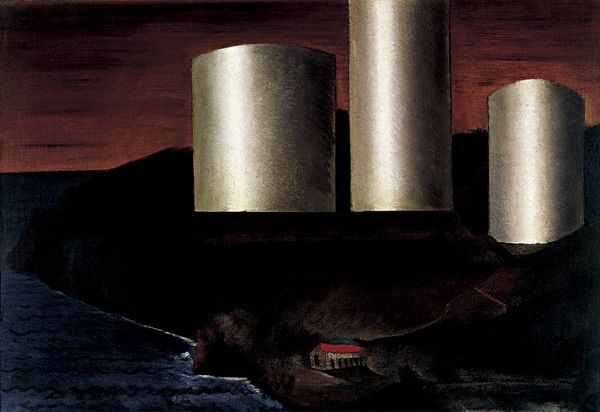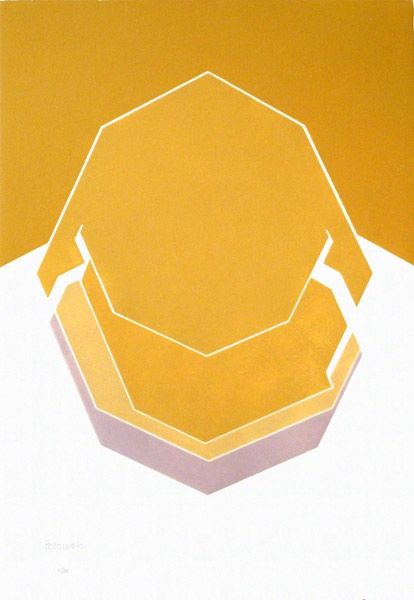
painting, oil-paint
#
cubism
#
painting
#
oil-paint
#
geometric
#
abstraction
Copyright: Public domain US
Editor: We’re looking at Francis Picabia's "Very Rare Picture of Earth," painted in 1915 using oil paint. At first glance, it strikes me as strangely mechanical and detached – all sharp angles and cool metallic tones. It's almost as if Earth is being depicted as a machine rather than a planet teeming with life. What do you make of it? Curator: That feeling of detachment is precisely what draws me in. Picabia wasn't just painting a picture; he was offering a commentary, a sardonic wink at the dawn of the machine age. Earth as a machine...it's funny because, really, isn't that what we've made it? The gold leaf, so often associated with the sacred, feels almost blasphemous applied to these cold, geometric forms, don't you think? Editor: Blasphemous is a strong word, but I get your point. The juxtaposition is certainly jarring. So, is Picabia suggesting our increasing reliance on technology is somehow despoiling the planet? Curator: Maybe "spoiling" is too simple. Perhaps he’s inviting us to reflect on what we're actually *creating* when we "despoil." Is it necessarily all bad, or are we simply creating a different kind of earth, an earth sculpted by cogs and angles instead of valleys and rivers? What if he sees a strange beauty in that transformation, even a brutal one? He probably wasn't after anything specific like an answer, but this approach can be enlightening, dont you agree? Editor: I do! Thinking of it less as a condemnation and more as a... well, almost a portrait of a world in transition really opens it up. Curator: Exactly! It's a prompt, not a judgment. He’s tossing us into the deep end, and all we have to do is paddle. Editor: Well, I feel like I've paddled a bit further today. Thanks for shining a light on that, it's incredibly helpful.
Comments
No comments
Be the first to comment and join the conversation on the ultimate creative platform.
